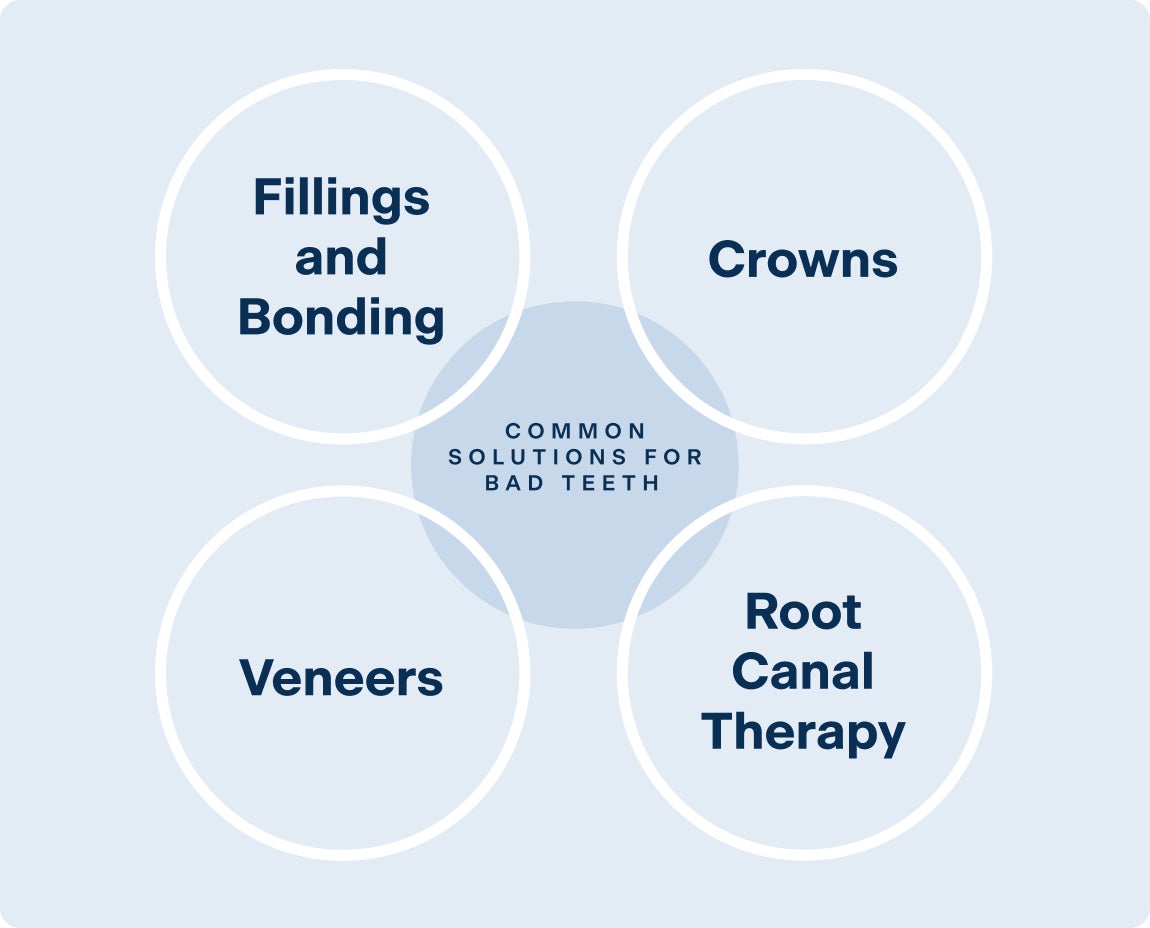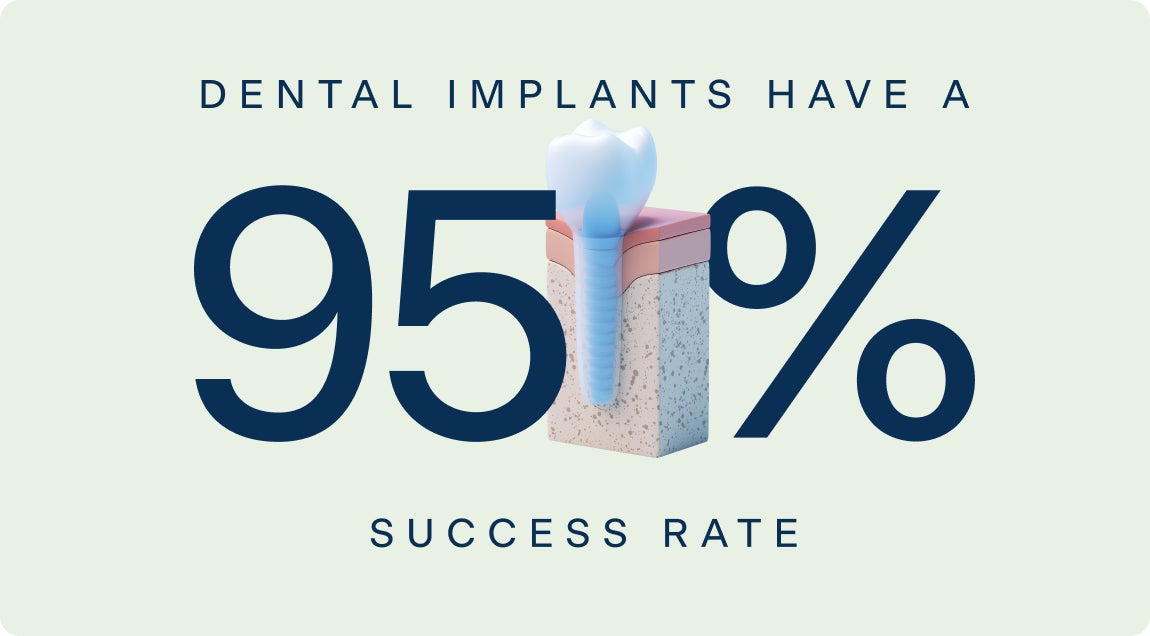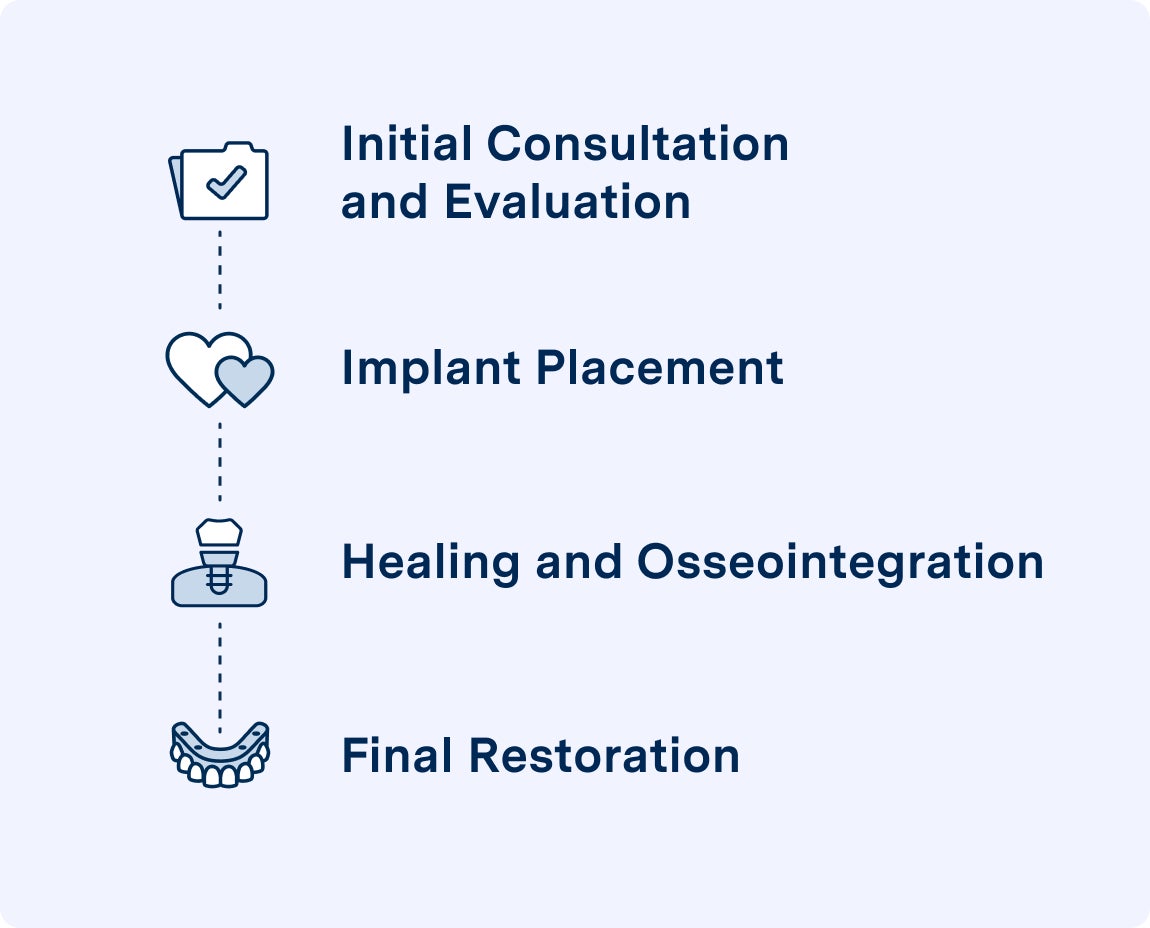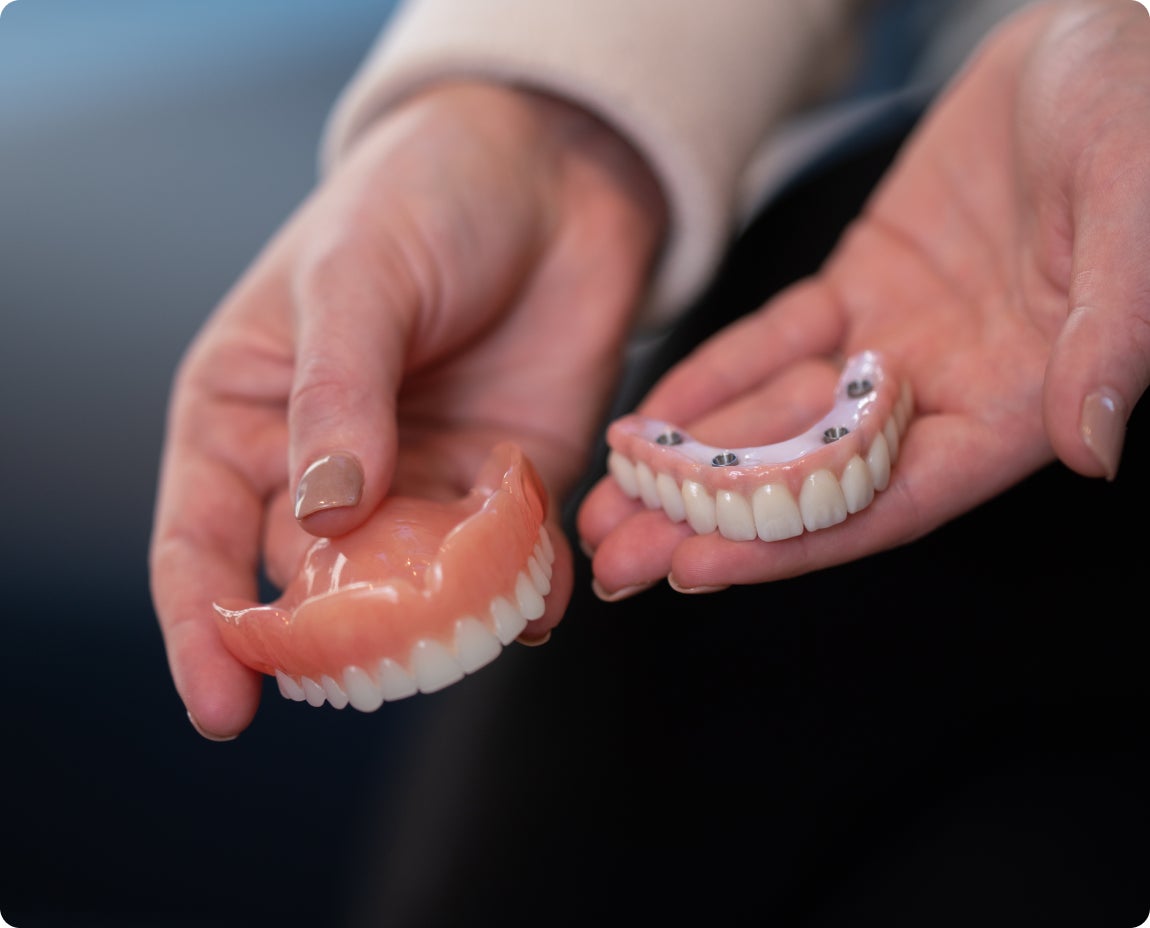Why Dental Implants Are Your Best Option for Restoring "Bad Teeth"
Explore the causes of bad teeth, their potential health risks, and expert restoration options available at ClearChoice.

Eric, ClearChoice San Jose (left)
At ClearChoice, we don't believe in "bad" teeth, but we do believe in oral health and helping our patients.
And "bad" or rotten teeth can significantly impact your quality of life. They affect not only your oral health, but also your mental health. The stigma attached to tooth loss can impact your self-confidence and overall well-being. Whether caused by decay, damage, or genetic factors, poor teeth can lead to discomfort and embarrassment.
Fortunately, dental implants provide a long-lasting solution. Dental implant treatment offers a durable, functional, and aesthetically-pleasing option for tooth restoration. Let's dive deeper into what can cause "bad" teeth and some of the best solutions for restoring your smile.
What Causes Bad Teeth?
A variety of factors can contribute to the deterioration of dental health. Poor oral hygiene practices, like inconsistent brushing and flossing, can lead to plaque buildup and tooth decay. Dietary choices, including high sugar intake, can further exacerbate these issues.
Genetics also play a role, with some individuals being more prone to cavities and gum disease. Additionally, medical conditions like diabetes can contribute to bad teeth. The high blood sugar levels caused by diabetes lead to increased glucose in saliva. On top of bad breath, this allows bacteria to thrive and build up plaque, jeopardizing your teeth and gums.
Other chronic health problems, and even certain medications can also negatively affect oral health. Regular dental check-ups are crucial for prevention and early intervention.
Common Solutions for Bad Teeth and Dental Problems
When it comes to tooth decay or damage, there are several treatment options based on the severity of the condition.

Fillings and Bonding
For minor decay, fillings and bonding can be practical solutions. These involve removing the decayed portion of the tooth and restoring its shape with materials like composite resin.
Crowns
Crowns serve as a robust solution for more significant tooth damage. By capping the compromised tooth, crowns protect it from further deterioration while restoring function.
Veneers
Veneers are a cosmetic solution ideal for front teeth. They are thin porcelain shells adhered to the tooth surface. They can enhance your aesthetic appearance and resolve minor blemishes like lost tooth enamel.
Root Canal Therapy
For teeth with infected pulp, root canal therapy can save the tooth by removing the infection and sealing the tooth. This can help prevent further damage.
Limitations
While these treatments can be effective, they often fall short for treating advanced decay. If a tooth or teeth have passed the threshold of treatment, more comprehensive solutions may be necessary.

Why Dental Implants Are Often the Best Solution for Bad Teeth
Dental implants are the premier choice for addressing severe tooth damage or loss, offering numerous advantages over other options.
High Success Rate
With a success rate between 95%-98%, dental implant surgery provides a highly reliable solution for tooth restoration.
Longevity and Durability
Designed for longevity, implants stand the test of time and withstand daily wear, often lasting a lifetime with proper care.
Unlike removable dentures, which need to be replaced every 5-7 years, dental implants do not wear down as quickly.
Functionality Like Natural Teeth
Implants allow individuals to eat, speak, and smile with confidence, replicating functionality near that of natural teeth. The increased stability of dental implants allows patients to bite, tear and chew food more easily. They also allow for better articulation and enunciation.
Prevention of Bone Loss
Unlike other solutions, implants help preserve your jawbone, promoting bone density.
Because missing teeth increase the chance of losing other teeth, dental implant treatment can reduce the risk of further bone loss.
Aesthetic Appeal
One of the significant benefits of dental implant restorations is their natural appearance and feel. The prosthetic crowns seamlessly blend with existing teeth for an attractive smile.
The Dental Implant Process: What to Expect
Understanding the dental implant process can help patients prepare for the journey, from consultation to final restoration.

Initial Consultation and Evaluation
The process begins with a thorough evaluation. This determines candidacy for implants, accounting for bone density and overall oral health. This visit also determines whether the patient needs any additional procedures, like a bone graft or sinus lift.
Implant Placement
This surgical dental implant procedure involves inserting the implant into the jawbone. This titanium post provides a stable foundation for the replacement tooth. It acts as an artificial tooth root.
Healing and Osseointegration
A crucial phase, osseointegration, involves the fusion of the implant with the jawbone, promoting stability and longevity.
Follow our tips for pain management and diet for your initial recovery phase. Brush your teeth carefully during this time, keep up your dental care, and follow your surgeon's instructions.
Final Restoration
The process concludes with the permanent attachment of a crown. The crown is the artificial tooth attached to the implant. It completes the restoration and blends seamlessly with the patient's natural teeth.

Comparing Dental Implants with Other Options
Dental implants stand out in comparison to other tooth replacement treatments due to their numerous benefits. It's important to note that crowns, bridges or dentures can be attached to dental implants. However, dental implants are what secure these solutions.
Dentures
While removable dentures provide a temporary solution for missing teeth, they can be uncomfortable and require frequent adjustments and maintenance. They have to be taken out and cleaned every night, and must be replaced every 5-7 years. In addition to shifting around during chewing, many dentures cover the palate at the top of a patient's mouth. This reduces a patient's ability to taste food.
Bridges
Well made fixed bridges in compliant patients can last a long time. They also prevent resorption of the jawbone just like an implant bridge. But their major disadvantage compared to implants is that they require the preparation of natural teeth for support.
Implants
Overall, implants remain the superior choice to replace missing or bad teeth that cannot be fixed. Implants offer durability, functionality, and a natural look.

Cost Considerations and Investment Value of Dental Implants
Despite the higher upfront cost of dental implants, they present long-term value and investment in oral health.
Initial Cost
While implants are more expensive initially, their long-term benefits and low maintenance requirements often justify the investment.
Long-Term Value and Success Rate
Their exceptional durability and success rate provide peace of mind, making them a cost-effective choice over time.
Frequently Asked Questions About Bad Teeth and Dental Implants
What is the best solution for bad teeth?
While several options exist, dental implant restorations are often considered the best solution due to their durability and natural appearance.
Can I get implants if my teeth are really bad?
Candidacy for implants depends on various factors, including bone density. A dental professional can provide a personalized assessment.
What is the success rate of dental implants?
Dental implants boast a high success rate of 95%-98%, making them a reliable option for tooth restoration.
Are dental implants worth it?
Given their longevity, functional benefits, and aesthetic appeal, dental implants are a worthwhile investment for many seeking to restore their smile.
